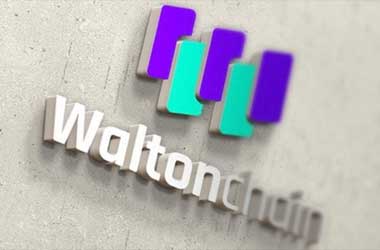 Waltonchain (WTC), a blockchain based traceable business ecosystem with complete data sharing and absolute information transparency, announced that it has partnered with China Chemical Information Center, which provides services such as chemical industry consulting, professional exhibitions, standard drafting, chemical regulations consulting etc.
Waltonchain (WTC), a blockchain based traceable business ecosystem with complete data sharing and absolute information transparency, announced that it has partnered with China Chemical Information Center, which provides services such as chemical industry consulting, professional exhibitions, standard drafting, chemical regulations consulting etc.
Notably, a few days before, the company’s subsidiary, IOT Technology partnered with ISHIJAH Trading, the numero uno coffee brand of the Civil Aviation Administration of China (CAAC).
Xiamen Ishijah Trading Co., Ltd.
The company focuses on airport business services. In 2011, Ishijah was officially authorized by the Diaoyutai State Guesthouse as the first and only coffee brand to be approved in Fujian province airport service area and obtain distribution rights of Diaoyutai Coffee brand, which is specially served to heads of foreign states and VIPs during official visits.
Ishijah will utilize the RFID smart billing platform and achieve an accurate integrated management of food and beverage services. The smart billing model enables interpretation of consumer behavior and assess restaurant turnaround rates accurately. The model also provides a database for marketing strategies. The partnership aims at
● Optimization of operational efficiency
● Reducing operating costs of chain stores
● Ensuring data security
● Ensuring transaction security
● Promoting the application of IoT RFID & blockchain technologies throughout the social beverage & food, and restaurant industries.
What is Waltonchain?
Waltonchain combines RFID (Radio-frequency identification) technology with blockchain to create a supply chain management system. The project is named after Charlie Walton, the inventor of RFID.
RFID can be considered as a tag, which can be attached to any object. As it doesn’t require a line of sight to be read by a sensor, it is better than barcodes. RFID technology has endless list of real-world applications. This includes auto payment at toll booths, inventory management, tracking animals and shipment, etc.
The Waltonchain uses RFID technology to track products at each stage of production and distribution. The relevant data is stored in an immutable blockchain, which also ensures accuracy.
Waltonchain project
The project was established in November 30, 2016. The Xiamen-headquartered Waltonchain project aims to combine both RFID and blockchain technology to simplify management of supply chains in an effective manner. The blockchain, with WTC as the native coin, decentralizes the supply chain and provides information about the product’s history in a secure and transparent manner.
The Waltonchain is made up of blockchain, the RFID reader chips and RFID tag chips. The RFID reader acts as a node on the chain. The device that is connected to the chain is the RFID tag. The RFID hardware prevents bottlenecks that are commonly faced by other applications on the blockchain.
Walton Software
The Waltonchain software system, Walton protocol, and the Walton coin (WTC) together makeup the Walton software. The Walton coin is the native token used for payments within the Waltonchain ecosystem. A total of 100 million tokens was created at the genesis block. No more tokens will be issued. The Walton coin serves multiple functions such as issuing sub chains, dividend interest, credit and mortgage system, decentralized exchange, distributed asset exchange, and distributed voting and governance system.
Advantages
Reduces data costs associated with production, inspection, warehousing, shipping, and retail. Consumers can easily verify the origin of products.

 United States
United States United Kingdom
United Kingdom















